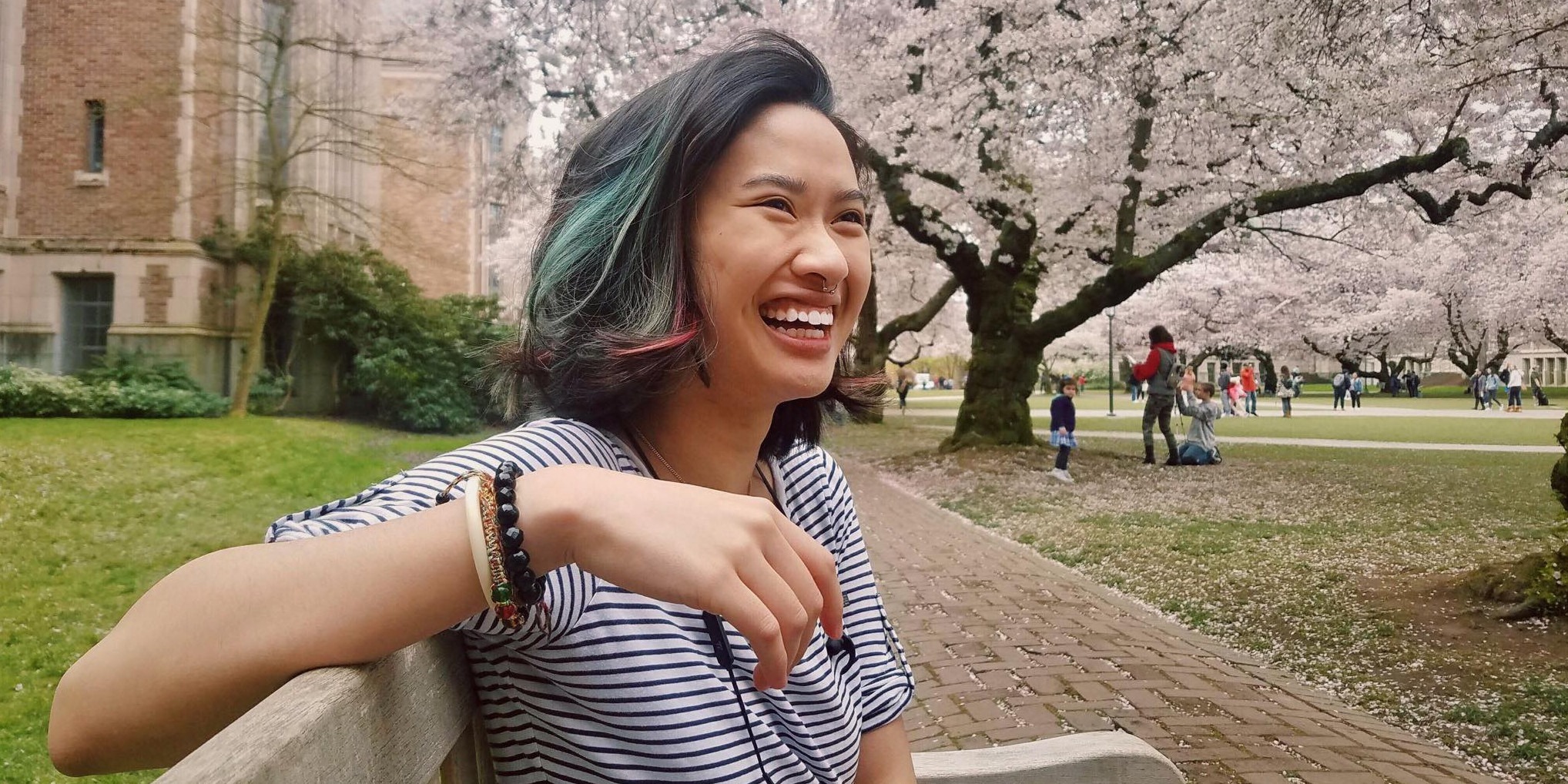“I’m Kim, and I’m in the GRID/Neural Systems lab. My project is about restoring tactile feedback through electrocorticography grids (ECoG) via the somatosensory cortex, or more simply put, how to make people feel again. After graduation, I’ll be traveling in Europe just for fun. I think this will be the last time I’ll get to travel for an extended period without having to worry about school or jobs. Afterwards, I’ll be working in ultrasound systems at Philips as a software engineer.
My parents immigrated here from Vietnam. I was born in Vietnam but moved to the US when I was 3. My US hometown was very racially white– there were several school years where I was the only Asian person. I felt alienated and lost growing up during middle school and high school, and some of college as well. I don’t think my heart was in the right place when I first came to UW. My mom used to be a seamstress and my dad a mechanic, but after moving to the US they didn’t have any knowledge of English and were just by themselves with my brother and me. I really appreciated their courage, but I had a lot of guilt because of them working blue-collar jobs. I felt like I had to do something significant, like find a cure for cancer or teach a paraplegic how to walk, to make their sacrifices worth it.
I didn’t actually know what BioE was until I took BIOEN 215: Introduction to Bioengineering Problem Solving. When I was younger and visited Vietnam, I would just do fun things and some family stuff. It wasn’t until I visited Vietnam again after taking BIOEN 215 that I noticed the health disparities between Vietnam and the US. We really take our health care for granted here. And I know that a lot of people have been upset about our health care, but our technology is amazing compared to Vietnam, where everything in rural areas are hand-me-downs from other countries. It’s such a huge culture shock — the difference in health care between here and Southeast Asia. I guess that’s what inspired me to study BioE — I wanted to be a part of something bigger and to help people with backgrounds similar to mine.
The passing of one of our cohort-members really affected me a lot. This student was part of my cross-cohort BioE family, so I would interact with them from time to time. I think our particular cohort was unique, how we all made mental health a broader conversation. It was also something that I struggled with a lot, especially junior year. When I saw how our cohort came together after this student’s passing, it made me realize what a strong support system BioE has. It would have been very difficult for me without the support of my cohort, our staff, and faculty advisers. Nowadays, I make it a priority to go to therapy. It’s a time commitment, but it’s been so worth it; I’m a lot happier now. I think that’s what BioE taught me indirectly, how to be a human being and how to take care of myself.
I hope to be an advocate for mental health. I’m not as loud as other people, but I try to be amicable and approachable to students who might be having similar problems as me.”



